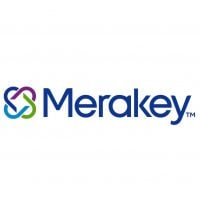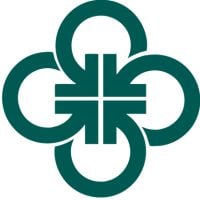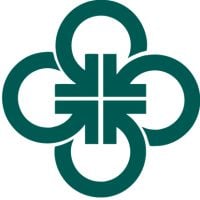Lawyers Concerned for Lawyers
Drug Rehab Center in Camp Hill, Pennsylvania
- Substance Abuse
- Opioid Addiction
- Dual Diagnosis
- Drug Addiction
- Alcoholism
Lawyers Concerned for Lawyers in Camp Hill, Pennsylvania, offers various levels of care, including drug rehab, outpatient programs, dual-diagnosis treatment, and aftercare support, to help individuals overcome addiction and achieve lasting recovery.
Multiple patients have reported Lawyers Concerned for Lawyers as permanently closed.
Research other rehabs in Camp Hill, Pennsylvania, or get help finding an open facility.
Our experts will find you an alternative facility.
(888) 674-0062 24/7 Free, Confidential, Expert HotlineAbout This Pennsylvania Facility
Lawyers Concerned for Lawyers is a drug treatment center located in Camp Hill, Pennsylvania. This facility specializes in providing support and treatment for individuals who are looking to overcome alcoholism, opioid addiction, substance abuse, drug addiction, and dual diagnosis. They offer various levels of care, including drug rehab, outpatient programs, dual-diagnosis treatment, and aftercare support. Lawyers Concerned for Lawyers is dedicated to helping individuals on their journey to sobriety and providing them with the necessary tools and support to achieve long-term recovery.
At Lawyers Concerned for Lawyers, individuals seeking help for addiction and substance abuse can find a range of services and treatment methods. The facility offers drug rehab programs designed to address the specific needs of each individual. Through outpatient programs, individuals have the flexibility to receive treatment while still maintaining their daily responsibilities. Lawyers Concerned for Lawyers also provides dual-diagnosis treatment, acknowledging the relationship between mental health and addiction. Their team of professionals is committed to providing comprehensive care and support to help individuals overcome addiction and achieve lasting recovery.
Genders
Ages
Modality
Additional
Conditions and Issues Treated
A drug abuser needs help because if no one helps them, they will not leave their vicious circle.
People who abuse drugs are likely to suffer from an addiction, which can cause serious health problems. It can also cause quarrels with people around them. It is common for drug abusers to have difficulty holding down jobs or relationships, but sometimes people around them can be quite tolerant. There are cases where the families of the drug abusers do not want to see them get any help, and the subject becomes controversial.
When it comes to helping drug abusers get sober, there are many options to choose from. It is essential to state that there is no “correct” way of doing things. People are different, and they need different types of help to get over their addiction.
Opioid addiction treatment should be done in a medically supervised drug rehab. Opioid addiction treatment will include detoxification and drug rehab counseling to help both the user and their loved ones learn how to live a successful sober lifestyle. Methadone, buprenorphine, and naltrexone are three medications that can help treat opioid addiction. Individual drug rehab counseling sessions can be helpful to discuss any questions or concerns with the drug treatment program.
When addiction and psychiatric issues co-occur, the addict’s recovery is more successful when both conditions are treated. A dual diagnosis refers to a condition in which the patient is diagnosed with two health issues: addiction and bipolar disorder.
Usually, dual diagnosis sufferers are prescribed a combination of treatments for each condition. The most common therapies are psychotherapy, behavioral therapy, spiritual counseling, 12-step programs, and medication management.
Psychiatric conditions are an obstacle to recovery because they can create roadblocks to a healthy lifestyle. Drugs and alcohol may be used as a means of self-medication, which can have dangerous consequences. Over time, addicts build up a tolerance and suffer withdrawal symptoms when drug use is stopped.
With the proper treatment, dual diagnosis sufferers can overcome their conditions and achieve lasting sobriety.
Alcohol Abuse, Dual Diagnosis (Co-Occuring Disorders), Opioid Addiction, Substance Abuse
Levels of Care Offered at Lawyers Concerned for Lawyers
This center offers a variety of custom treatment tailored to individual recovery. Currently available are Aftercare Support, Drug Rehab, Dual-Diagnosis, Outpatient, with additional therapies available as listed below.
Individuals struggling with drug addictions can get help from several treatment options, including inpatient and outpatient programs. Outpatient drug treatment programs can also provide patients with different levels of care, usually depending on the patient’s degree of addiction.
At an outpatient program in Camp Hill, a patient will attend a recovery program during the day and return home in the evening. Suppose a patient is struggling with drug addiction. In that case, an outpatient program can serve as an effective transition point during the recovery process.
Aftercare is a part of drug rehabilitation. It is also known as “post-treatment support.” Aftercare programs are available for addicts after they complete drug rehab. It is often the final step in the recovery process. The goal of aftercare is to ensure that addicts maintain their achievements in rehab and do not relapse. Professionals generally provide aftercare (including addiction therapists, physicians, social workers, psychologists) and involve individual and group therapy sessions.
Therapies & Programs
Individual therapy is a critical component of addiction recovery. It allows the patients to go deep into their core issues and discover how to handle those problems better. Therapy can be conducted in individual sessions as well as group settings. In individual therapy for addiction, the patient meets with their therapist one-on-one to focus on the underlying issues. This allows patients to open up and discuss personal topics they may not feel comfortable discussing in a group setting. This type of therapy can help develop solutions specific to each patient, which helps speed up the recovery process.
Group therapy helps prevent addicts from feeling isolated or unique in their situation by offering a sense of comfort and fellowship. It also creates a forum for addicts to build their support systems and learn from each other. The group therapy sessions at Lawyers Concerned for Lawyers occur in a group setting rather than one-on-one to create a safer, controlled environment where addicts feel comfortable.
Drug Rehab, Group Therapy, Individual Therapy
Payment Options Accepted
For specific insurance or payment methods please contact us.
Additional Details
Specifics, location, and helpful extra information.
Camp Hill, Pennsylvania 17011 Phone Number(617) 482-9600 Meta DetailsUpdated November 25, 2023
Staff Verified
Patient Reviews
There are no reviews yet. Be the first one to write one.
Camp Hill, Pennsylvania Addiction Information
Pennsylvania ranks 14th in the nation for drug-related deaths. More than 10% of all deaths in Pennsylvania have been related to drugs and alcohol. 30% of Pennsylvania youth reportedly drink alcohol monthly, with more than 20,000 teenagers having an alcohol problem. The rate of opioid misuse in Pennsylvania is double the national average.
17% of Camp Hill, Pennsylvania residents have used illicit drugs at least once in their lifetime. 21% of people who needed treatment for drug abuse did not receive it. The most common types of drug treatment available in Camp Hill are 12-step programs and outpatient treatment. Inpatient rehabilitation requires you to live at the treatment facility for the duration of your treatment.
Treatment in Nearby Cities
- Bensalem, PA (107.1 mi.)
- Kingston, PA (90.0 mi.)
- Philipsburg, PA (81.0 mi.)
- Broomall, PA (86.8 mi.)
- Homestead, PA (156.6 mi.)
Centers near Lawyers Concerned for Lawyers
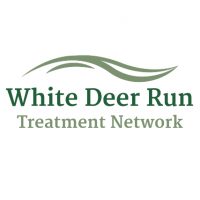
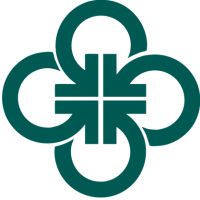
The facility name, logo and brand are the property and registered trademarks of Lawyers Concerned for Lawyers, and are being used for identification and informational purposes only. Use of these names, logos and brands shall not imply endorsement. RehabNow.org is not affiliated with or sponsored by Lawyers Concerned for Lawyers.

